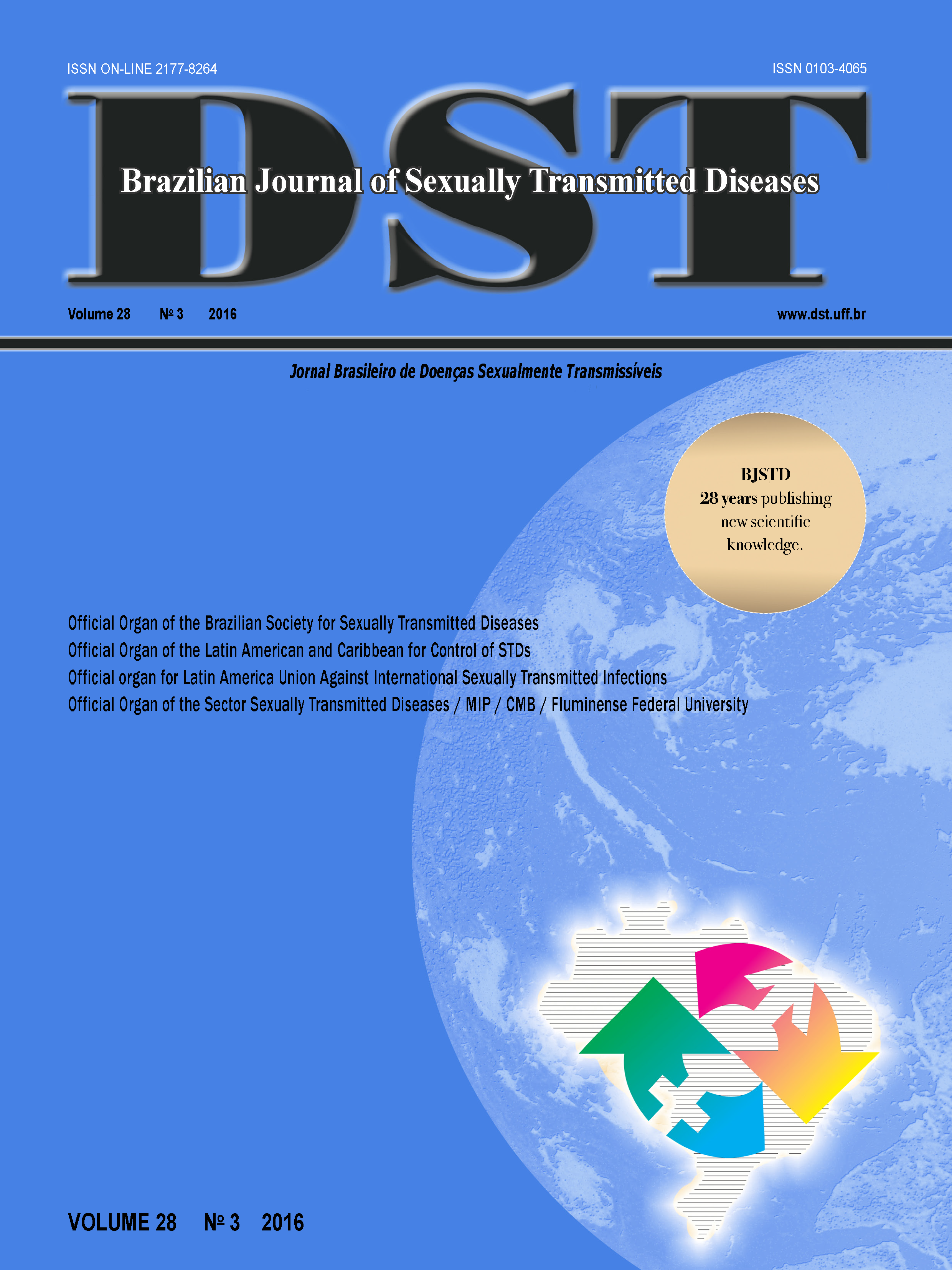College students and HIV infection
a study of sexual behavior and vulnerabilities
Keywords:
STI, AIDS, vulnerability, students, adolescentsAbstract
Introduction: Adolescence is marked by emotional, social and physical changes. In this stage of development, vulnerable individuals tend to engage in risk behaviors related to the use of alcohol and drugs as well as unprotected sex. Objective: To evaluate the attitude of university students with regard to sexually transmitted infections (STIs) and the influence of the university environment in this behavior. Methods: Standardized questionnaires were applied anonymously in classrooms by a trained team. The first group of respondents was made up of freshmen (first year college students) while the second group was composed of seniors (fourth year students) from 11 of the areas of the Universidade Federal do Paraná (UFPR). From a total of 1,459 respondents, 1,350 were included. The questionnaire applied was based on the Pesquisa de Conhecimentos, Atitudes e Práticas na População Brasileira de 15 a 64 anos (PCAP - Survey of Knowledge, Attitudes and Practices among the Brazilian Population aged from 15 to 64 years) of 2008, conducted by the STI, AIDS and Viral Hepatites Sector of the Health Surveillance Department of the Ministry of Health (MOH). The questionnaire was modified and adapted to the survey on vulnerability to AIDS/HIV infection, STIs, and unplanned pregnancy among UFPR students. Results: Of the 1,350 students covered, 1,070 (79.2%) had already had sexual intercourse at least once in their lives (74.9% of freshmen and 86.8% of seniors). 76.3% of female respondents and 82.7% of males had already started their sexual life. Out of the the 507 freshmen who had vaginal sex, 42.0% did not wear a condom, compared to 56.7% of 363 seniors (p<0.0001). Similar results are observed in relation to oral sex, where 94,9% of senior students wore condoms less often than freshmen (88,6%) (p=0.0021). A total of 273 people answered to both questions about HIV testing and unprotected vaginal sex in the past 12 months. Out of the 163 students who did not wear condoms, 55.2% undertook an HIV test in the period analyzed. On the other hand, only 41.8% of the 110 students who wore condoms during that period took HIV tests (p=0.0359). Conclusion: High-risk sexual behavior and poor risk assessment mark the profile of students participating in this study. The young people exposed are not aware of their real vulnerability. The university does not act as a protective factor for these students. For adolescents, many other factors surpass the risk of acquiring an STD. The university can and should contribute more effectively in raising awareness and promoting the health of their students.












